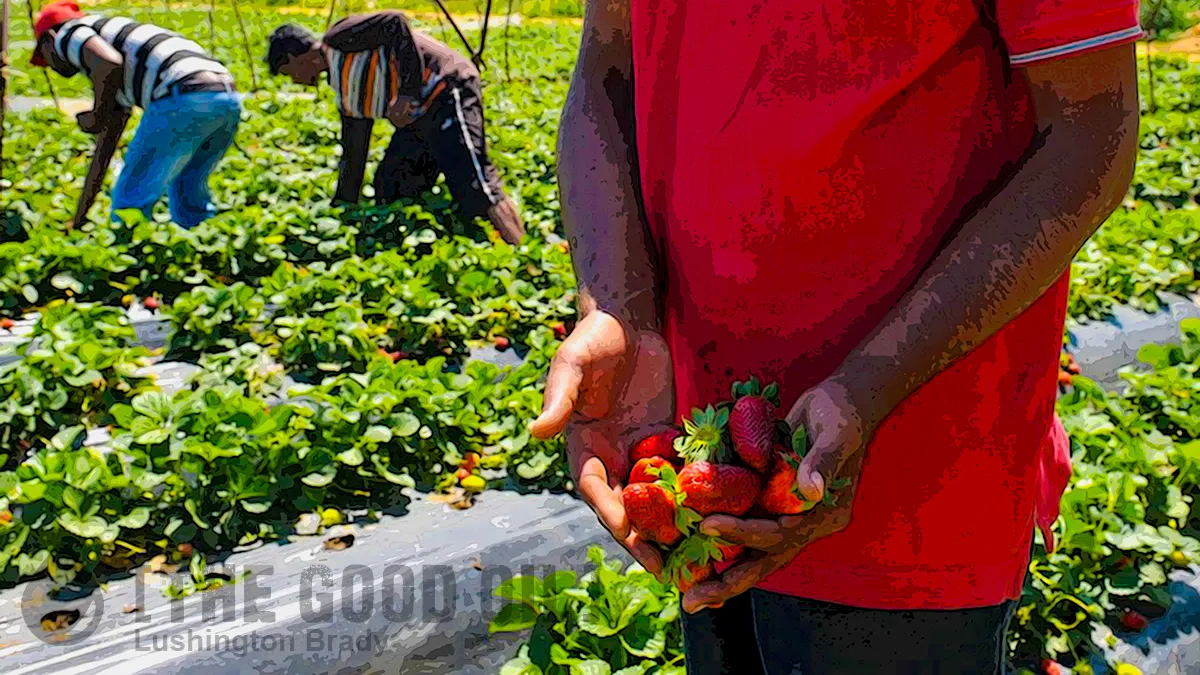Table of Contents
In the old days it was called ‘blackbirding’: Pacific Islander workers tricked or coerced, even outright kidnapped, to work as poorly paid (or not at all) labourers in Australia and New Zealand. By the late 19th century, the British government and its Antipodean colonies had mobilised to stamp out the practice.
Over a century later, blackbirding is back in style, in all but name.
Fair Work Ombudsman Anna Booth has condemned the “appalling” conduct of one of Australia’s largest celery producers, Lamattina, for deliberately paying no wages for extended periods to vulnerable migrant farmhands in Victoria.
The Federal Circuit and Family Court imposed $166,860 in penalties against A&G Lamattina & Sons, which supplies celery to Coles and Woolworths from its Boneo farm on Victoria’s Mornington Peninsula, for underpaying the three migrant workers more than $91,000 in just one year.
Describing Lamattina’s conduct as “egregious”, Judge Karl Blake said despite raising concerns about their pay with the company, one of the farmhands was only paid for 10 of 52 weeks of work; another only six out of 36 weeks worked; and the third only eight out of 41 weeks worked.
This is just the tip of the iceberg. Migrant workers have become a common sight in rural Tasmanian towns. Supermarket workers report anecdotally that the workers invariably shop almost exclusively for the cheapest rice and ramen specials. In just one case, 40 fruit pickers were found crammed into a single house. The dwelling had been converted into 10 bedrooms, with 56 bunk beds. The same property had earlier been issued an emergency order, due to fire risk, when 70 workers were found living in the same property.
Insiders working for other producers report that ‘it’s common knowledge’ that the head office has ‘a safe full of confiscated passports’.
Ms Booth slammed the company’s treatment of the workers who were from non-English speaking backgrounds – they speak Indonesian and Malay – and held bridging visas when employed by Lamattina. They were employed as casuals to plant, pick, and cut celery between February 2020 and February 2021 […]
The three employees were underpaid $91,907 between them in the course of a year: one of them more than $37,000 and the other two more than $27,000 each.
Finding the company’s conduct to be “clearly deliberate and intentional”, Judge Blake said the farmhands had suffered significant financial losses and were “vulnerable employees seemingly exploited or taken advantage of by their employer”.
The judge noted the extended period of time over which the contraventions had occurred; the significant sums of the underpayments; Lamattina’s lack of remorse and the employer having taken no steps to prevent contraventions in the future, plus its lack of cooperation with the regulator.
If only this were an isolated instance.
One in six migrants are paid less than the national minimum wage according to a new report by the Grattan Institute, which says governments have failed to stop exploitation of migrant workers with sexual harassment, bullying, and unsafe working conditions also rife.
The report suggests between five per cent and 16 per cent of employed recently arrived migrants – or between 27,000 and 82,000 workers – are paid below the national minimum wage of $21.38 (for adults over the age of 21), compared to up to 9 per cent of all Australian workers.
And between 1.5 per cent and eight per cent of recent migrants – between 6,500 and 42,000 people – are underpaid by at least three dollars an hour […]
The report says recent migrants are 40 per cent more likely to be underpaid than long-term residents with the same skills and experience and who work in the same job.
“Migrants are more vulnerable to exploitation because they've often been here for less time,” [Grattan Institute economist Brendan Coates] said.
“Many don’t have such strong English skills, but their visa conditions also reduce their bargaining power vis-a-vis employers.”
When Covid panic briefly shut off the flow of migrant workers, companies squealed that Australians ‘didn’t want to do the work’. Yet, Australian jobseekers reported that it was common for their applications to be rejected as soon as they disclosed their nationality.
Now we know why.









